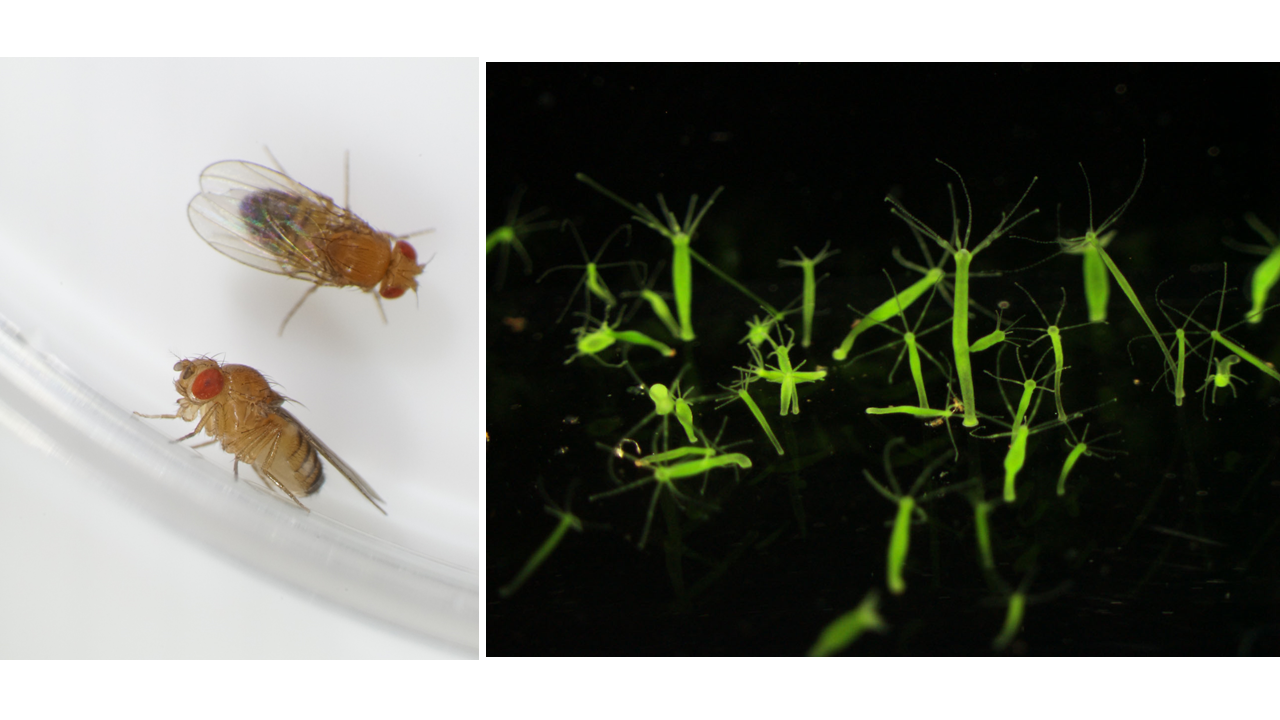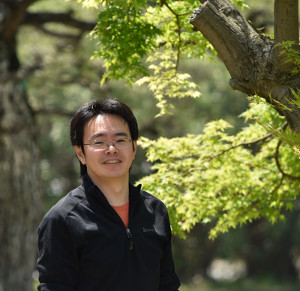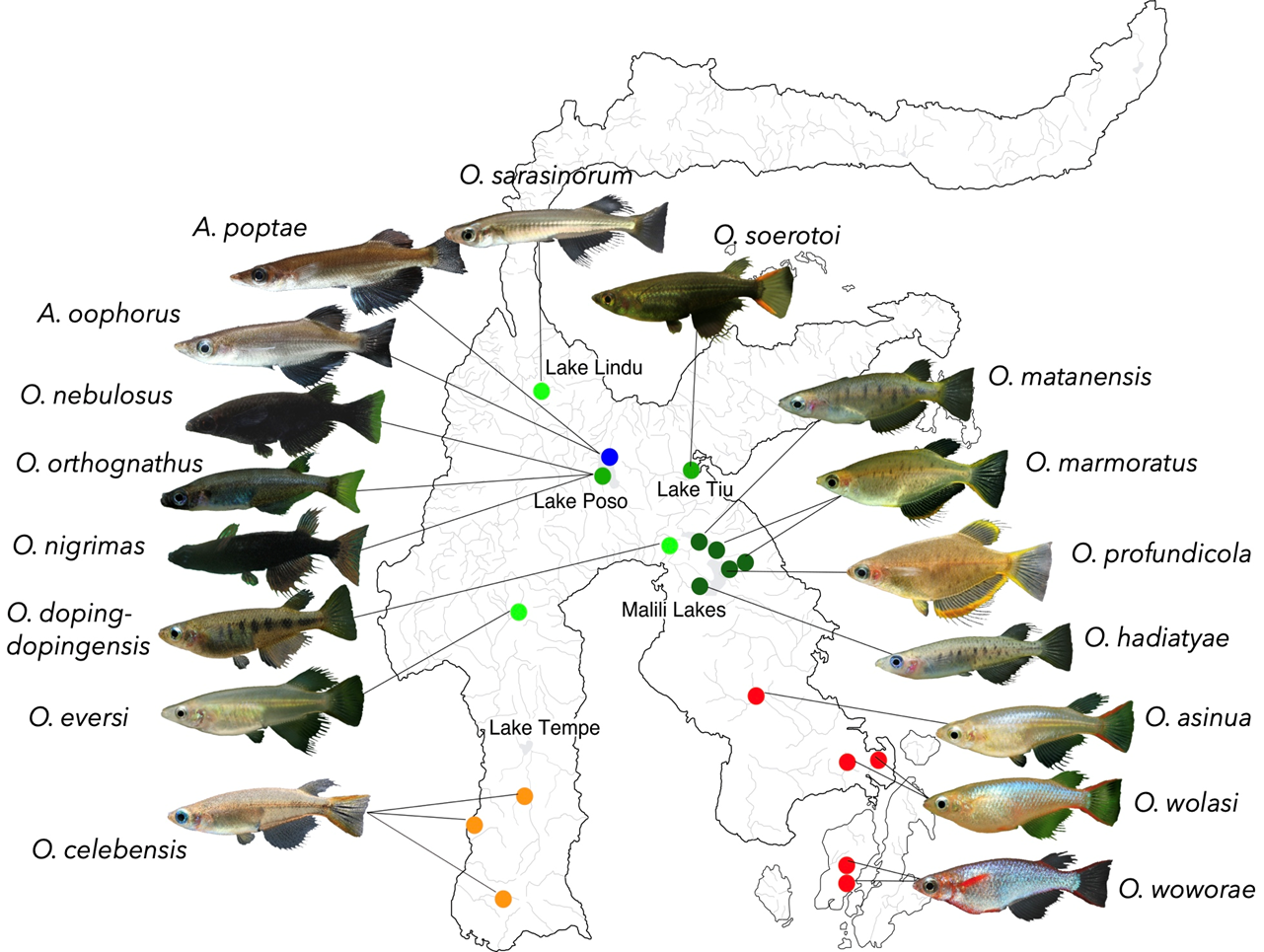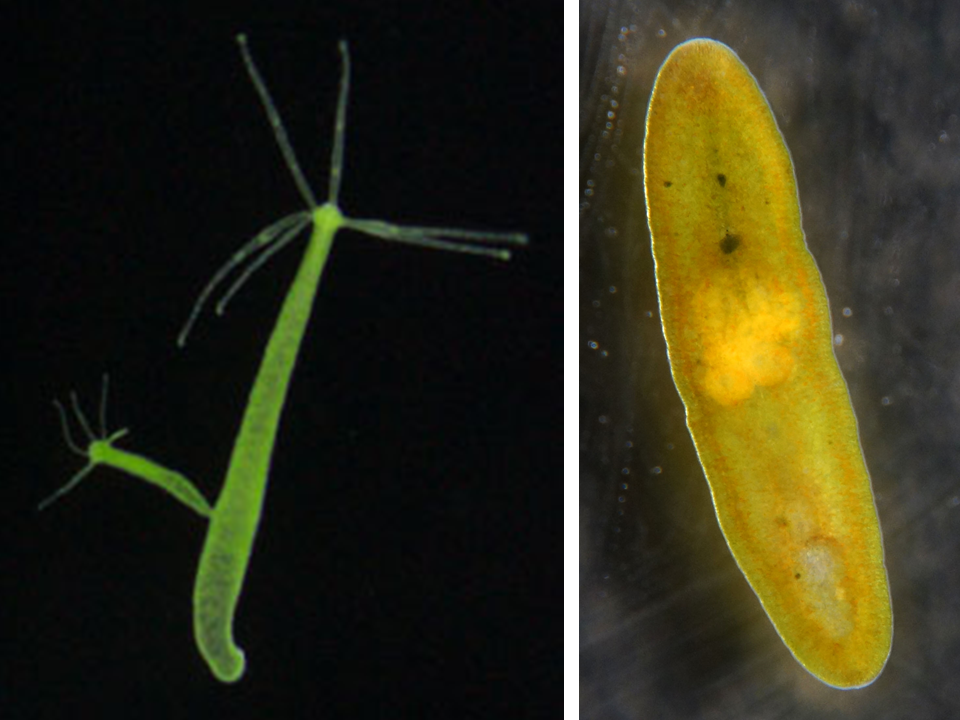Environmental Biology and Chronobiology

To reveal the principles of animal evolution, we conduct genome-wide studies using basal animals. In particular, we focus on unique ecology related to environmental adaptation and interactions between organisms, and aim to elucidate its molecular mechanism.
 |
|
|---|
We study the neuronal mechanisms of the circadian clock using the model organism Drosophila melanogaster.
 |
|
|---|

Phenotypic diversity in medaka fishes endemic to Sulawesi, Indonesia
Teleost fishes has become diversified and adapted to various aquatic environemnts. We aim to elucidate the molecular genetic basis and the evolutionary mechanisms of their phenotypic diversity. In particular, we are focusing on sexual dimorphism and speciation of the family Adrianichthyidae (medaka and its relatives), which has diverisified in East and Southeast Asia. Additionally, we are conducting development/inprovement of genome editing technologies in fishes and breeding of aquacultural fishes.
 |
|
|---|
Mechanism of Symbiosis between Animal and Algae
Symbiosis with algae is a general phenomenon found in various animals, but the relationships and evolutionary processes are diversified between species. We are focusing on the unique ecology of cnidarians and acoelomorpha, which have symbiotic algae inside their bodies, and analyzing the molecular mechanisms of interactions between organisms and adaptive evolution from genetic and genomic perspectives. Our research is conducted at the Ushimado Marine Institute. We are also investigating the distribution and ecology of various aquatic organisms using DNA information.

